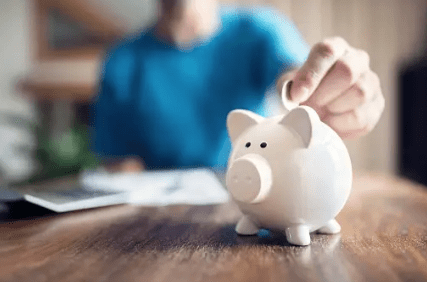
Savings are an important money management tool. They’re a financial safety net should the unexpected occur and also the perfect place to set aside cash for major purchases.
As you get older, it’s certainly more beneficial to have savings put aside wherever possible. After all, with owning a house and a car comes the risk of the boiler breaking suddenly or your motor suddenly needing urgent repairs.
But even though savings are likely to be more necessary the older we get, getting into the habit of setting aside funds is something that can begin at any age.
Why save from a young age?
Learning how to plan your money is a vital skill and getting into the habit of saving up from an early age is one way of getting to grips with budgeting. As an adult, good money management is vital, especially at the moment when we’re in the middle of a cost-of-living crisis.
But by learning how to do this from a young age, it’s possible to get into the practice of automatically placing funds in a separate account just in case, or to simply have them there to save towards buying something. This then sets young people up for the future.
Who saves for young people?
Parents and grandparents may set up a savings account from a child’s birth. These accounts are typically not accessible to the child until they turn 18 and money could be added for birthdays and Christmases over the years. As this savings pot mounts up, it could be something that’s used for the child’s education or to put towards a deposit on a house, for example.
Being upfront with the child about this savings account could help to make them aware that being organised with finances can help in the long term.
Teenagers also might want to start saving. There are a variety of reasons why they’re likely to need money, from holidays with friends to new games or clothes. Alternatively, they might consider having money set aside from a weekend job that’s going towards spending at university, for example.
What are the other benefits of saving?
As well as forming part of how we keep on top of finances from month to month, learning to save early can be helpful for our mental wellbeing. Our financial circumstances and mental health are certainly influential on each other, so by getting into good habits early, it’s possible to start as you mean to go on.
However, there is no age limit on learning savings skills. Even if you’ve not tried putting a set amount into a separate account before, if it’s possible for you to start now then it’s worth doing it. You’ll be surprised by how quickly that pot grows.
Top saving tips
If you’re starting your savings journey, here are some pointers:
- Assess your finances
Consider your current income. This is ultimately what you have to work with from a budgeting perspective every month.
Next, look at your regular outgoings and list them to get a better idea of where your money is going. This may be your phone bill, rent, travel costs or car payments, for instance. With a clearer view of your expenses, you can start to cut spending where necessary.
- Work out how much
Decide how much you can realistically put into your savings. Even the smallest amount is a start, so try not to worry if you can’t stick to your original budget. Adjusting to meet your needs is another key part of money management.
- Have a goal
Why are you saving up? Do you want to have money for university? Are you saving for a car? Having something to reach for can be a real boost.



